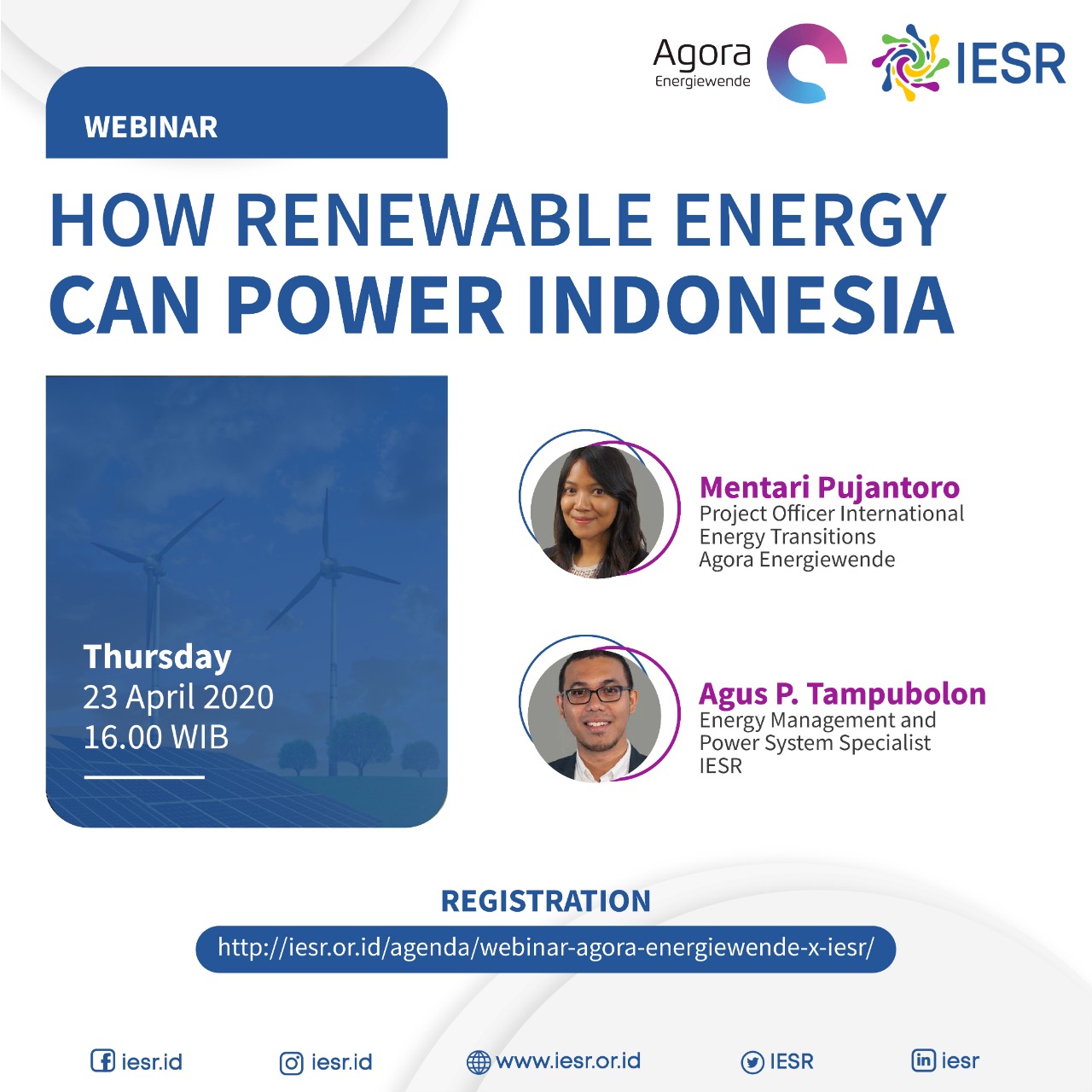Part 5 of the Agora webinar series (in English)
Hosted by our Partner:
Indonesia is the world’s fourth most populous country on a continuous growth trajectory. In order to meet the growing demand for electricity, the Indonesian government is focusing on fossil fuels and in particular on coal-fired power generation. The share of the latter is supposed to grow to 65 percent of total generation by 2030. At the same time, the government aims to increase the share of renewable energy from less than 10 percent today to 23 percent of generation by 2025. With only five years to reach this target, policy concentrates mainly through the expansion of hydropower and geothermal energy, while wind and solar PV, the fastest growing technologies globally, only play a negligible role with planned capacity additions of less than two gigawatts.
How can Indonesia fulfill the growing demand in an economic and sustainable way? Against this background, the Institute for Essential Services Reform (IESR), together with the Monash University Grid Innovation Hub and Agora Energiewende conducted a model-based powers system analysis of Java, Bali, and Sumatra. Looking ten years ahead, we have assessed different pathways for the Indonesian power system: what are the impacts of a moderate electricity demand growth on investment and power plant utilisation? What are the implications of adding considerable shares of wind and solar capacity to system costs and how will this system ensure security of supply?
On 23 April, Mentari Pujantoro (Agora Energiewende) and Agus Tampubolon (IESR) will present the conclusions drawn from the study “A Roadmap for Indonesia’s Power Sector” and discuss the latest developments of the Indonesian energy policy. The one-hour webinar will be held in English and will include a Q & A session.
REGISTRATION
The participation in the webinar is free of charge. You can register HERE
PRESENTATION
We will publish the presentation on the day of the webinar in order to make sure you can access it no matter the internet connection.
RECORDING
We are going to record the webinar in order to allow anyone not able to follow it on 23 April to watch it afterwards. The recording will be published on this site after the webinar.
We look forward to your participation and an interesting discussion!


